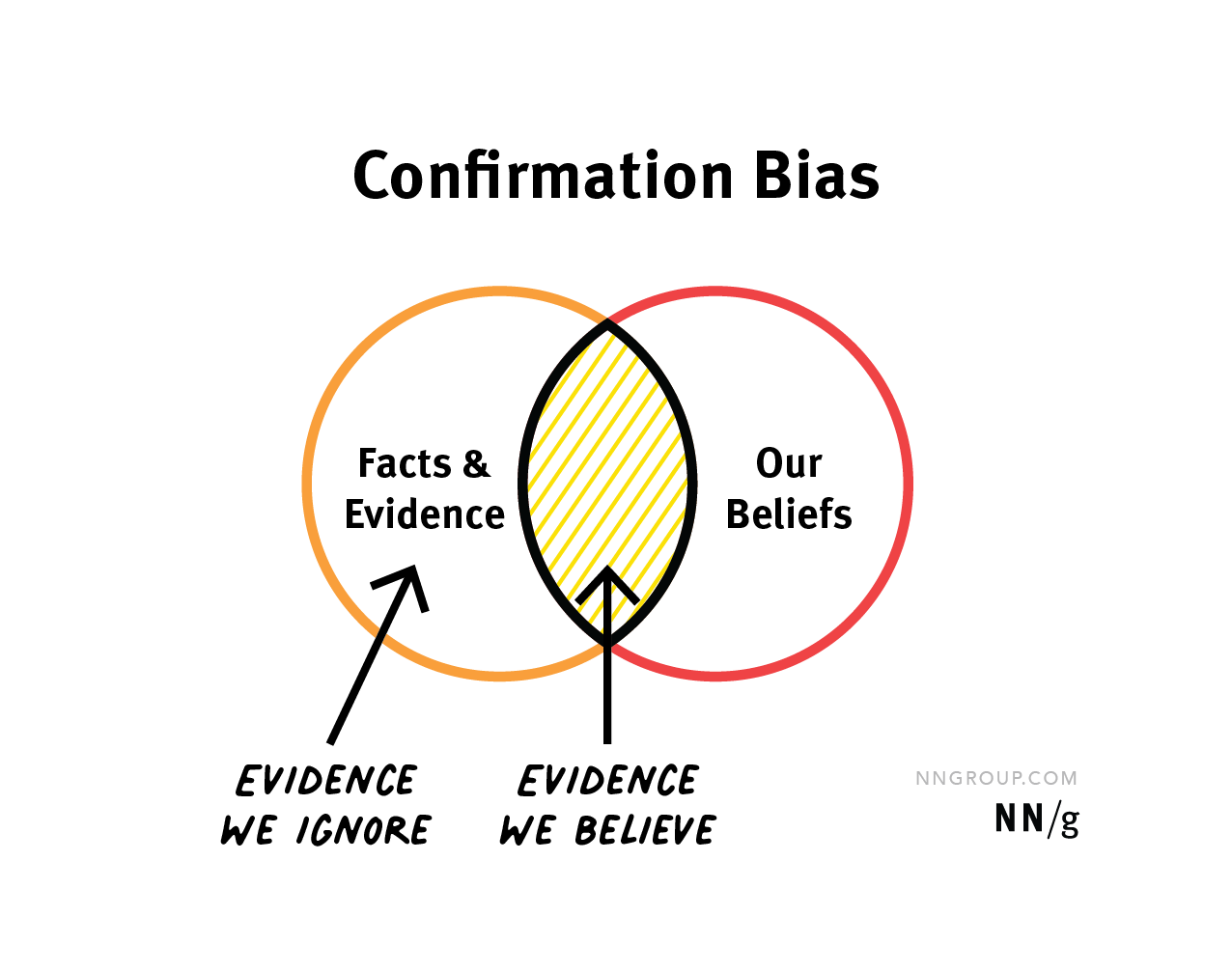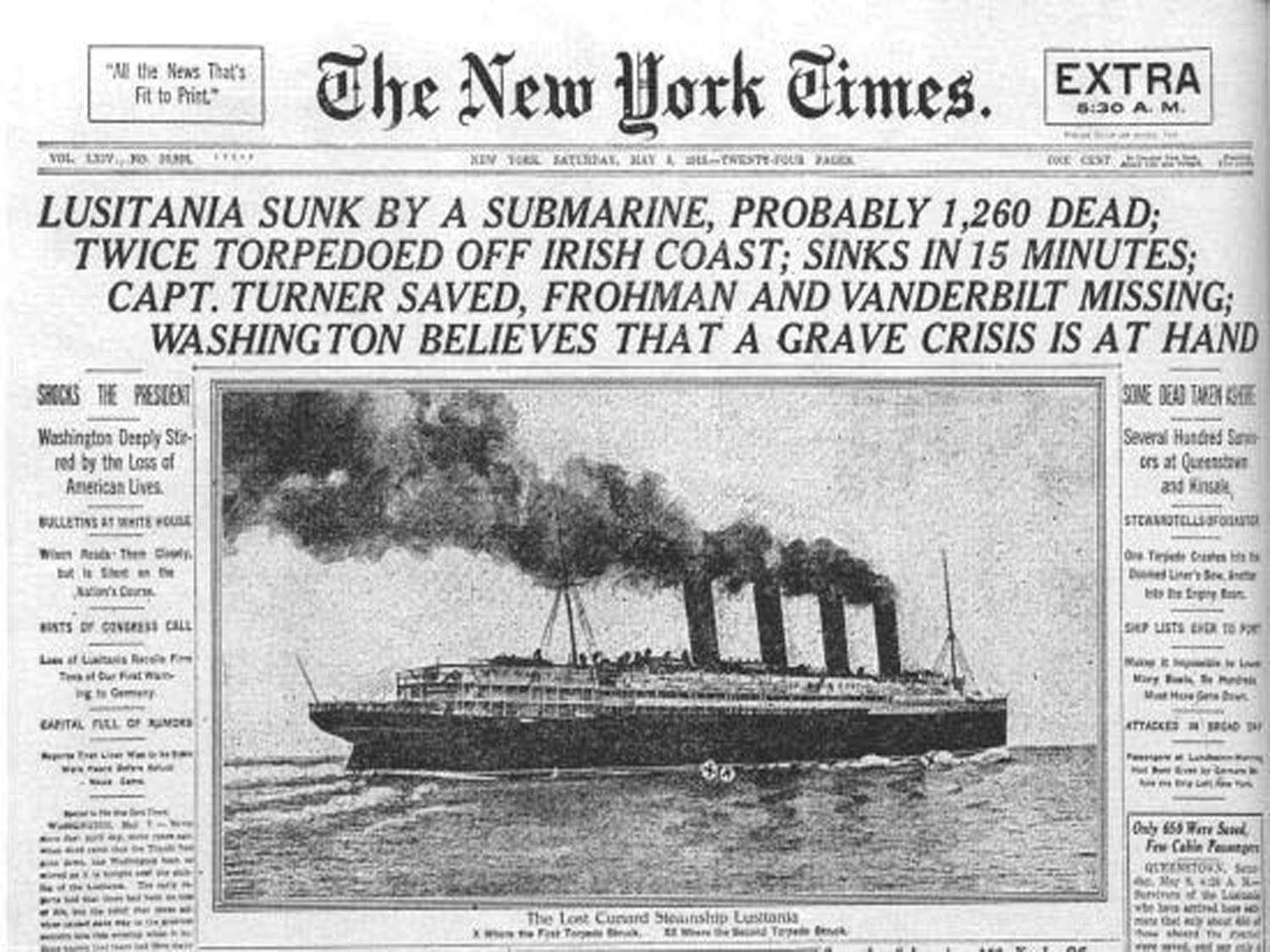What Are Cognitive Biases
Cognitive biases are systematic patterns of deviation from norm or rationality in judgment, leading to erroneous judgments and decisions.
15 Most Studied and Illustrative Cognitive Biases:
-
1. Confirmation Bias
The tendency to search for, interpret, favor, and recall information in a way that confirms or supports one's pre-existing beliefs or hypotheses.

Situation & Manipulation: Social media algorithms create a "filter bubble" by showing you content that aligns with your existing views, reinforcing your beliefs and filtering out opposing information.
Situation: A parent who values stability and a child who values democratic change will both interpret news about foreign protests differently, each seeing confirmation of their own worldview and strengthening their individual positions.
-
2. Dunning-Kruger Effect
People with low ability at a task overestimate their ability. Conversely, highly competent individuals may underestimate their relative competence.

The "Flat Earth" Society: The rise of social media has given a platform to theories like the flat earth, where individuals with a superficial understanding of physics and astronomy confidently challenge centuries of scientific evidence. Their confidence stems from an inability to recognize their own lack of knowledge.
"Armchair Virologist": During a pandemic, someone who has read a few articles online might confidently argue with epidemiologists, unaware of the vast complexity of the subject. Their confidence comes not from knowledge, but from a lack of it.
-
3. Curse of Knowledge
A cognitive bias where better-informed people find it extremely difficult to think about problems from the perspective of less-informed people.
Situation: A doctor tells a patient: "You have idiopathic hypertension with a risk of left ventricular hypertrophy. I'm prescribing an ACE inhibitor to reduce afterload." The patient hears a string of terrifying, incomprehensible terms. The doctor has forgotten what it's like not to know these terms and fails to translate them into simple analogies.
-
4. Survivorship Bias
The logical error of concentrating on the people or things that "survived" some process and inadvertently overlooking those that did not because of their lack of visibility.
During WWII, researchers analyzed damage on returning bombers to reinforce their armor. They proposed strengthening areas with the most bullet holes. Mathematician Abraham Wald objected: reinforce areas WITHOUT holes, because planes hit in those critical spots (engine, cockpit) simply didn't return.
-
5. Just-World Hypothesis
The belief that the world is fundamentally fair and people get what they deserve: good things happen to good people, and bad things to bad people. This bias can lead to victim blaming.
Upon hearing about a robbery victim, someone might think, "They probably provoked it by walking through a dark street." This thought protects them from the realization that bad things can happen to anyone without reason.
-
6. Emotional Reasoning
Taking one's emotions as evidence of objective truth. Thinking follows the formula: "I feel it, therefore it must be true," leading to conclusions based on feelings rather than objective data.

Situation & Manipulation: In 1929, PR genius Edward Bernays was hired to break the social taboo against women smoking. Instead of rational arguments, he staged the "Torches of Freedom" event, where debutantes smoked cigarettes in a public parade, calling them symbols of their independence. The emotional connection ("I feel modern and free when I smoke") overrode rational health concerns.
-
7. Overgeneralization
Forming a general rule or conclusion based on one or a few isolated events, then incorrectly applying this rule to other unrelated situations. Labeling is an extreme form of overgeneralization.

Cargo Cults: After WWII, some islanders in Melanesia observed that American soldiers performed rituals (marching, radio calls) and then received goods ("cargo") from planes. They overgeneralized this single observation into a universal rule, believing that imitating these rituals would bring them cargo, leading them to neglect farming and fishing.
-
8. Bandwagon Effect
The probability of a person adopting a belief or behavior increases based on the number of people who already hold that belief or engage in that behavior.
TikTok Challenges: Why do millions of people start performing the same strange action, like a specific dance? Because everyone else is doing it! The desire to be part of the group and the fear of missing out (FOMO) can be stronger than rational thought.
-
9. All-or-Nothing Thinking (Dichotomous Thinking)
The tendency to evaluate personal qualities, situations, or events in binary, mutually exclusive categories (e.g., good/bad, success/failure) instead of seeing them on a continuum.
Judging Historical Figures: People often debate whether a figure like Caesar was a "hero" or a "tyrant." All-or-nothing thinking prevents us from accepting that he could be both: a brilliant strategist who was also a ruthless conqueror. Reality is complex, but labels are simple.
-
10. Selective Abstraction
Drawing conclusions based on a single detail taken out of context while ignoring other, more important parts of the overall picture. Focus on this detail (whether positive or negative) distorts perception of the entire situation.

The Sinking of the Lusitania: Before US entry into WWI, propaganda focused solely on the deaths of civilians on the Lusitania, framing Germany as a ruthless killer. This selective focus ignored the context that the ship was carrying military munitions, making it a legitimate target under the laws of war.
-
11. Disqualifying the Positive
An active mental process where experiences or data contradicting core beliefs are rejected, ignored, or transformed to not disturb those beliefs.
Situation: A person with low self-esteem receives a compliment but thinks, "They are just being nice." They disqualify the positive feedback so it doesn't contradict their belief in their own worthlessness.
-
12. Jumping to Conclusions
The tendency to make conclusions without sufficient supporting evidence. This includes two main forms: "Mind Reading" and "Fortune Telling."
Mind Reading: "My friend didn't reply to my message, so they must be angry with me." Fortune Telling: "I'm definitely going to fail this interview, there's no point in preparing."
-
13. Magnification and Minimization
Evaluating an event, personal quality, or situation in a distorted scale, significantly exaggerating or minimizing its actual importance or magnitude. Often manifests as "catastrophizing."
Magnification (Catastrophizing): "I made a typo in the email, I'll definitely be fired!" Minimization: "Yes, I got a promotion, but it was just luck, nothing special."
-
14. Labeling and Mislabeling
An extreme form of overgeneralization where instead of describing specific behavior or mistakes, a person assigns themselves or others a global, static, and usually emotionally charged label.
Political Hate: In online discussions, instead of engaging with an opponent's arguments, people often apply a label: "liberal," "conservative," "boomer," "zoomer." Once the label is applied, the person's actual words can be ignored in favor of arguing against a caricature.
-
15. Personalization
The tendency to relate external events to oneself without basis for such conclusions. Seeing oneself as the cause of events over which one had no significant influence.
A child is doing poorly in school, and the mother thinks, "It's my fault, I'm a bad mother," not considering multiple other factors (child's characteristics, school environment, teachers).
